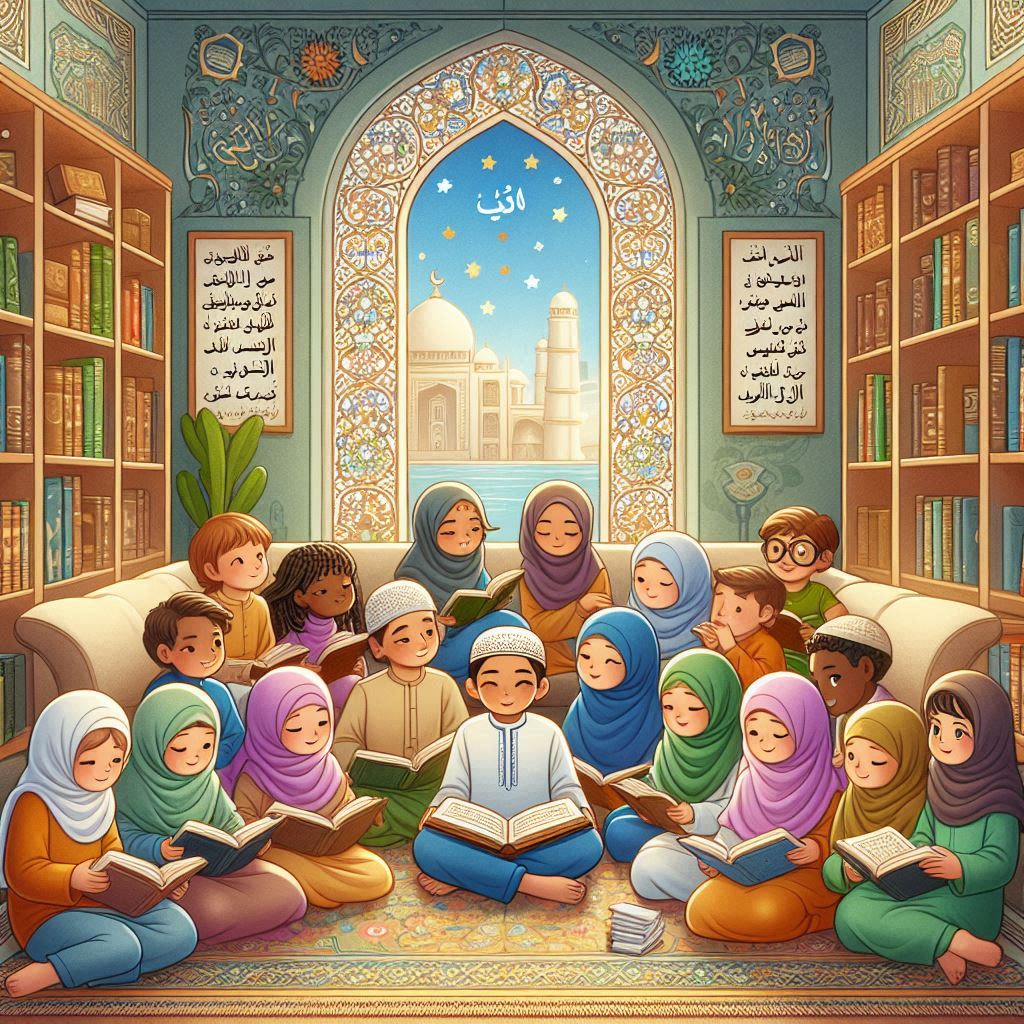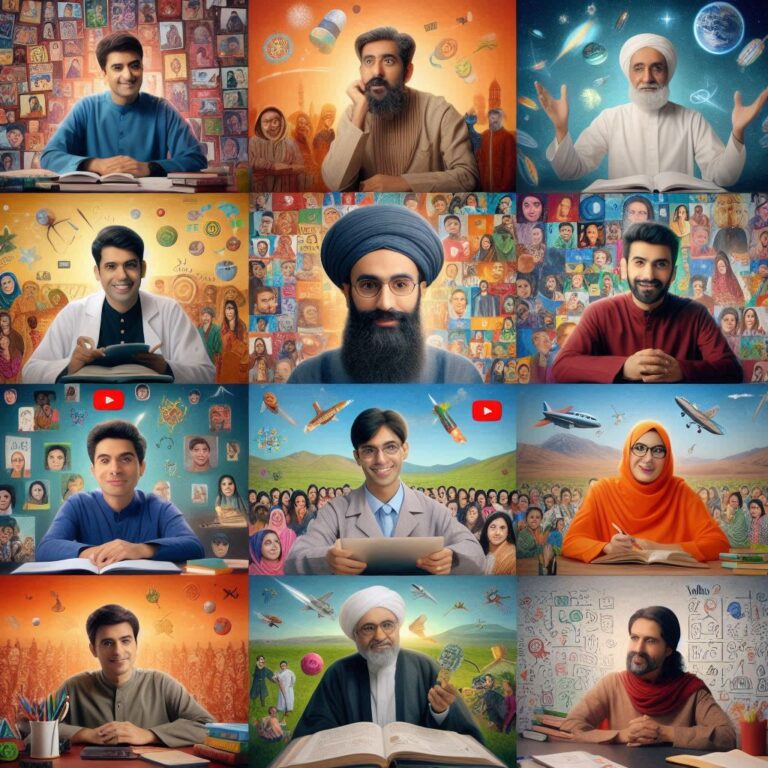Education holds a sacred place in Islam, far beyond academic achievement or economic success. It is considered a divine command, a spiritual necessity, and a lifelong journey. The Quran and Hadith stress the importance of seeking knowledge as a path toward righteousness, wisdom, and closeness to Allah. In this article, we explore the importance of education in Islam through the Quranic perspective, highlighting verses, Hadith, and historical insights to inspire Muslims today.
What Does Islam Say About Education?
Islam views education as a holistic process that includes both religious and worldly knowledge. It is not limited to memorization or rituals, but extends to understanding life, society, ethics, and science. Education in Islam is about developing the mind and soul to serve Allah and contribute to humanity.
The Prophet Muhammad (PBUH) emphasized learning so deeply that he said:
“Seeking knowledge is an obligation upon every Muslim.” (Sunan Ibn Majah)
Whether it is the study of religion, science, medicine, or art, Islam encourages its followers to seek knowledge relentlessly.
Quranic Verses That Emphasize the Importance of Education
1. Surah Al-Alaq (96:1–5): The First Revelation
“Read in the name of your Lord who created – Created man from a clinging substance. Read, and your Lord is the most Generous – Who taught by the pen – Taught man that which he knew not.”
These were the first verses revealed to the Prophet Muhammad (PBUH). The very first commandment was “Iqra” (Read). This alone shows how significant literacy and learning are in Islam. Allah places value on the ability to read, write, and acquire knowledge.
2. Surah Al-Zumar (39:9): Are Those Who Know Equal?
“Say, ‘Are those who know equal to those who do not know?’”
This rhetorical question highlights the superiority of those who possess knowledge. The Quran praises people of understanding and wisdom and encourages Muslims to reflect, question, and learn.
3. Surah Taha (20:114): Du’a for Knowledge
“My Lord, increase me in knowledge.”
This verse is a direct du’a (supplication) from the Prophet Muhammad (PBUH). It teaches believers that the pursuit of knowledge never ends and should be a continuous part of our spiritual growth.
Prophet Muhammad (PBUH)’s Teachings About Knowledge
Knowledge is Mandatory
The Prophet Muhammad (PBUH) made it clear that seeking knowledge is fardh (obligatory) for every Muslim. This includes both men and women. He established the mosque as a place of learning and encouraged literacy among his companions.
The Prophet as a Teacher
The Prophet himself was the greatest teacher. He explained the Quran, clarified doubts, corrected errors, and encouraged questions. His teaching methods included storytelling, demonstrations, and repetition, all of which are common even in modern education.
Education in the Early Muslim Community
The companions of the Prophet carried forward his legacy by establishing centers of learning across the Islamic world. During the Islamic Golden Age (8th to 13th century), cities like Baghdad, Cairo, and Cordoba became global centers of knowledge. Scholars like Ibn Sina, Al-Khwarizmi, and Al-Farabi contributed to science, medicine, and mathematics—all inspired by the Quranic encouragement to explore the natural world.
Libraries, universities, and madaris (Islamic schools) flourished, and Muslims became leaders in both religious and secular education.
Types of Knowledge in Islam
1. Religious Knowledge (Ilm al-Deen)
This includes Quranic studies, Hadith, Fiqh (Islamic jurisprudence), and the biography of the Prophet (Seerah). Understanding these subjects helps Muslims fulfill their religious obligations, develop good character, and make ethical decisions.
2. Worldly Knowledge (Ilm al-Dunya)
Islam encourages studying science, medicine, engineering, agriculture, and other worldly fields. The Quran invites believers to observe nature and reflect on Allah’s creation, indicating that science and faith are not opposed but complementary.
“Indeed, in the creation of the heavens and the earth and the alternation of the night and the day are signs for people of understanding.” (Surah Al Imran 3:190)
Why Education is a Responsibility in Islam
For Parents
Islam places a heavy emphasis on parents educating their children. It is not just about formal schooling but about moral, spiritual, and ethical development. The Prophet said:
“There is no gift a parent can give his child better than good manners.” (Tirmidhi)
And good manners are often a product of proper knowledge and understanding.
For Teachers
Teachers are among the most honored individuals in Islamic tradition. They are the inheritors of the Prophet’s mission and are promised great rewards in the Hereafter.
“The superiority of the learned over the devout is like that of the moon over the stars.” (Abu Dawood)
For Society
A knowledgeable society is a just society. Islam teaches that an educated ummah (community) is capable of solving its own problems, guiding others, and living in peace.
Education for Women in Islam
Despite cultural restrictions in some regions, Islam has always supported female education. Aisha (RA), the wife of the Prophet, was one of the most knowledgeable companions. Women were among the first Quran memorizers and Hadith transmitters.
The Prophet said:
“Whoever has a daughter and does not bury her alive, does not insult her, and does not favor his son over her, Allah will admit him to Paradise.” (Abu Dawood)
Encouraging girls to learn is not just a right—it’s an Islamic duty.
Reviving the Spirit of Learning in Modern Times
Today, Muslims can harness technology to revive the Quranic emphasis on education. Here’s how:
- Online Islamic courses and apps (e.g., Bayyinah TV, Quran Companion).
- Blending modern and Islamic education in schools and universities.
- Encouraging youth to become scholars, scientists, and thought leaders.
- Family learning sessions with Quran Tafseer, Hadith reading, and discussions.
Conclusion
The Quranic perspective on education is clear: learning is sacred. The pursuit of knowledge is a form of worship that elevates the believer in this world and the next. As Muslims, we must reconnect with our rich tradition of education—not just through formal schooling but through a lifelong journey of reading, asking, observing, and growing.
“Whoever follows a path in pursuit of knowledge, Allah will make a path to Paradise easy for him.” (Sahih Muslim)
Let us embrace education with sincerity, not just for success in this life, but to earn Allah’s pleasure in the hereafter.



